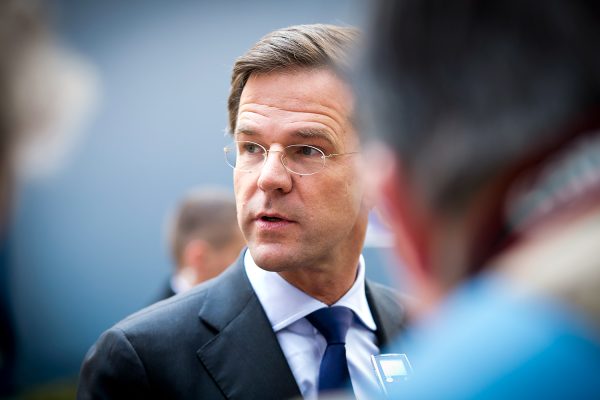
Dutch parliamentarians narrowly approved an EU trade agreement with Canada on Tuesday, but ratification of the treaty faces an uphill battle in the Senate, where Prime Minister Mark Rutte’s ruling parties do not have a majority.
If the pact isn’t supported by the Netherlands — one of the EU’s most liberal and free-trading nations — it would call the bloc’s ambition to uphold the global trade regime in lieu of American leadership into doubt.
Since Donald Trump was elected in 2016, the EU has completed free-trade agreements with Japan and South America. The first went into effect in 2019, the second has yet to be ratified.
Opposition
The Comprehensive Economic and Trade Agreement between the EU and Canada, which eliminates nearly all remaining tariffs between the two sides and includes mutual recognition of many professional qualifications, was negotiated from the Dutch side by a Labor Party trade minister.
Since the deal provisionally came into force, Dutch exports in goods to Canada have increased 12 percent to €3.4 billion. Estimates are Dutch companies stand to gain another €600 million to €1.2 billion from the pact.
Yet Labor voted against it on Tuesday, as did other left- and right-wing opposition parties. They worry mutual recognition of food standards will open the door to the import of Canadian hormone-treated beef and chlorinated chicken, despite assures from Dutch and EU officials to the contrary.
The ruling Christian democrats and liberal parties are six seats short of a majority in the upper chamber. Although senators, who are indirectly elected by provincial deputies, seldom vote against the government of the day, they tend to be more critical of international treaties.
Options in the Senate
Without the Labor Party and Greens, on whom Rutte has so far relied in the Senate, the coalition’s best hope may be to do a deal with the far-right Forum for Democracy. It has ten seats.
Forum’s members recently voted for an EU trade agreement with Vietnam in the European Parliament, although national party leaders said that was a mistake. Forum voted against the trade agreement with Canada in the Dutch lower house.
Another option would be to convince three small right-wing parties in the Senate to vote in favor, which would give the government a majority of one. But two of those parties are critical while the third is so far opposed.
